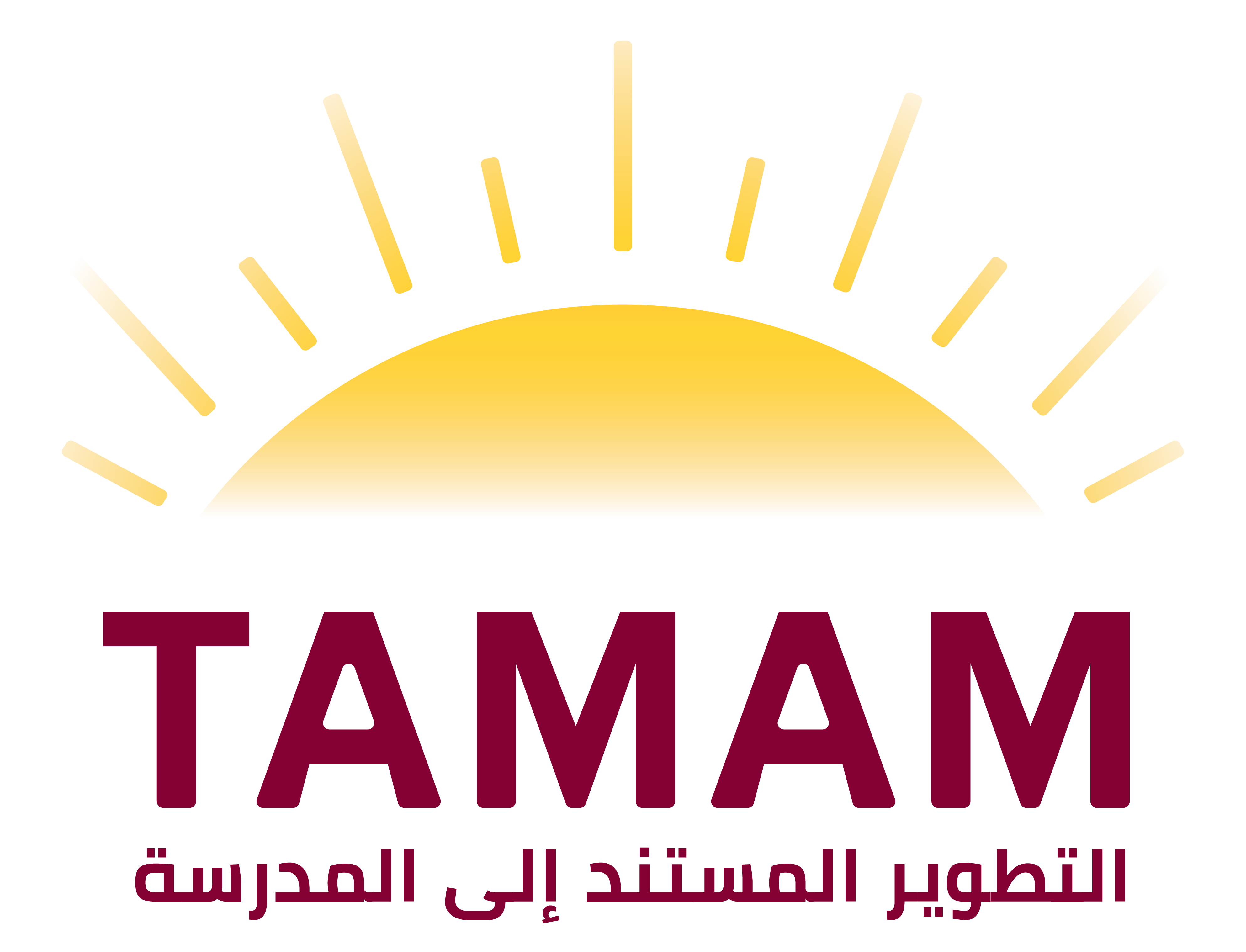The TAMAM Lebanon Hub project was launched in 2015 with the aim of achieving school improvement that: 1) focuses on developing students holistically and prepares them to be productive and responsible citizens; 2) improves teachers’ performance and involvement in the school improvement process to become agents of change capable of facing the challenges of public schools while sustaining their momentum; and 3) engages the school’s parents, community and students in the shared responsibility of this improvement process. During its five years, the Hub project worked with six lead teams in geographically distributed public schools in Lebanon: Bzal Mixed Public School, Ghobeiry Second Mixed Public School, Jezzine Elementary Public School, Kfarruman Second Intermediate Public School, Rachel Edde Public School, and Tarbiya Haditha Public School for Girls. This report presents the experience of the TAMAM Lebanon Hub steering team (HST) while working with these six schools. The report starts with an overview of the initiation of the Hub project, then it provides a description of the profile of the selected schools, their improvement projects and the impact these projects had on the students, teachers, coordinators, principals, and parents. The report also describes the completed capacity building activities throughout the project, which included more than 230 encounters with the six public schools in forms of gatherings, workshops, training sessions, coaching and follow-up visits, meetings, and daily interactions. Moreover, the HST conducted several planning and monitoring meetings, networked with various stakeholders, engaged in ongoing research and experimentation on the TAMAM programs, prepared 3 proposals for expansion, made 4 presentations at international conferences and published one study in an international peer reviewed journal.
This report also describes the impact of the capacity building activities conducted with the school lead teams on their leadership capacity, motivation, mindsets and the institutional culture of their schools. The results of the monitoring conducted showed that the completed activities resulted in the lead team members acquisition -to different degrees- of the TAMAM competencies, and their successful planning and implementation their initiatives following the TAMAM Capacity Building Program starting with identifying their improvement needs up to monitoring/ evaluating their implementation plans. Moreover, the capacity building activities and the approach the HST followed with the school lead teams has a positive impact on their motivation to participate and engage in improvement. It was also apparent that the lead team members, including the school principals, have experienced a paradigm shift in their mindset and their patterns of unexamined beliefs, which is reframing the professional principles of their practices. The completed activities did not only result in impact on the development of team members and their schools, it also included several research activities and outcomes which includes a list of policy/administrative recommendations that need to be taken into consideration when working on improvement with Lebanese public schools. Finally, the report presents the conditions surrounding the implementation of the project at the ministry level and the school level, by describing some of the faced challenges and the corresponding attempts made by the HST to support the implementation of the project. The report narrates how the project came to a closure and what are the HST’s future plans for the project. The project ends with a description of the activities that the PST conducted after the closure of the project which included continuing the research activities about the schools’ experiences, applying for new grants, and sustaining relationship and engagement of members within TAMAM professional network. The last section also shows how the Lebanon hub schools’ members acted as agents of change, where they continued the implementation and expansion of their innovative interventions, and engaged in various activities within the TAMAM Professional Network.
Technical Report 7: Toward an Educational Reform Movement in the Arab World: TAMAM Lebanon Hub Experience – By Dr. Rima Karami, Noha Chaar, Yusra Khattab (With TAMAM Project Steering Team: Feyrouz Salameh, Rania El Hage, Rola Katerji) – 2021